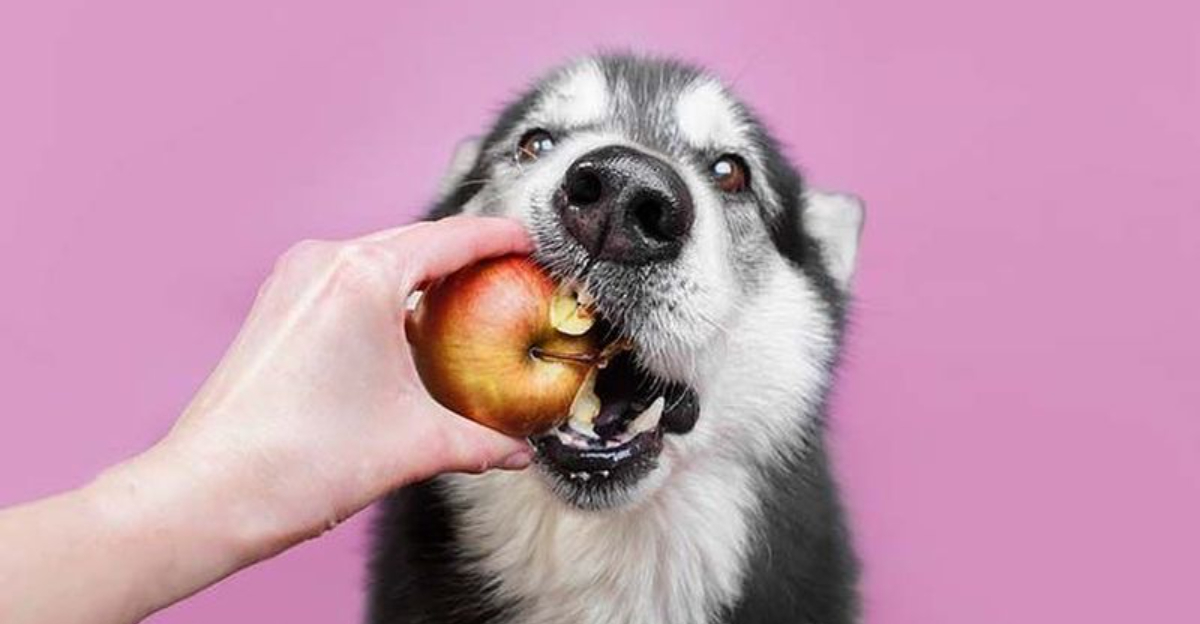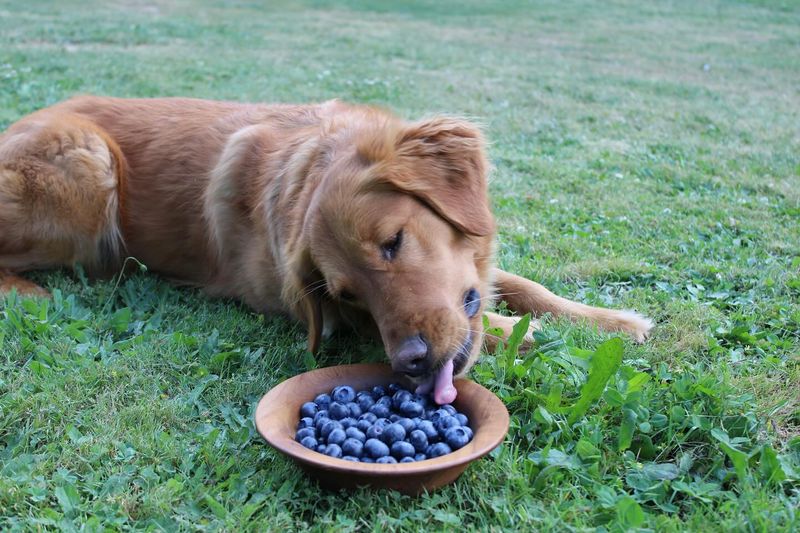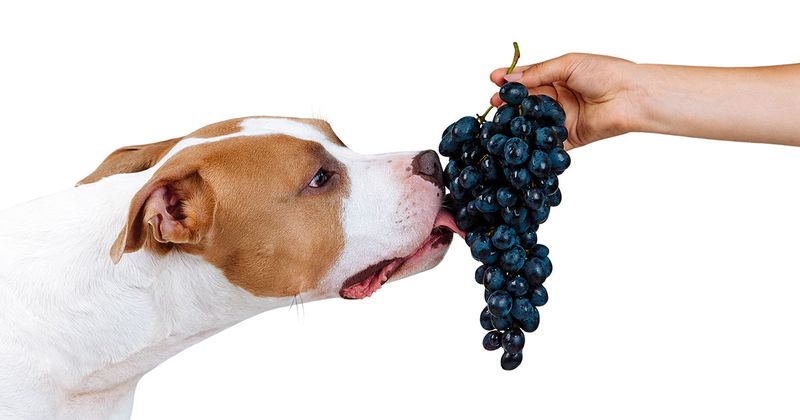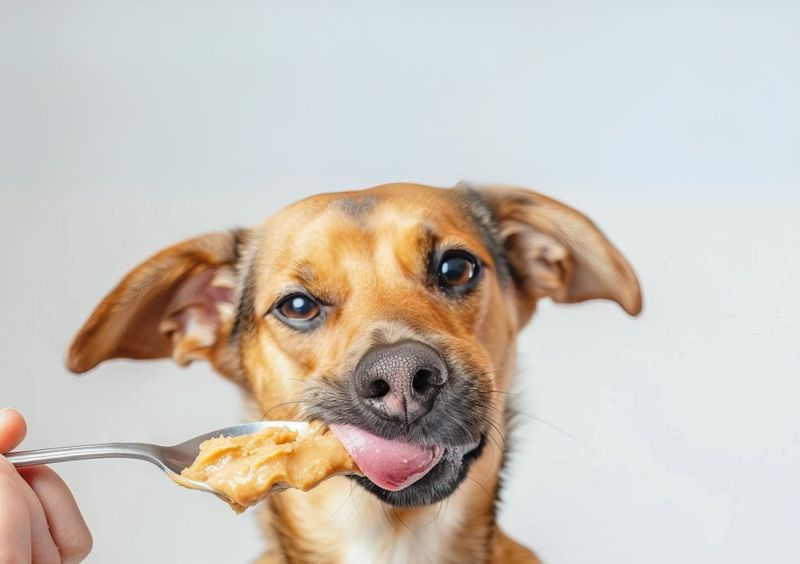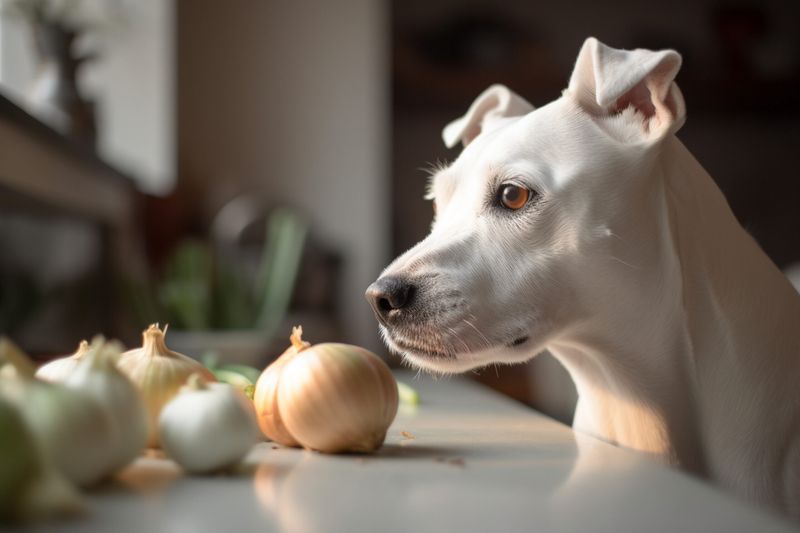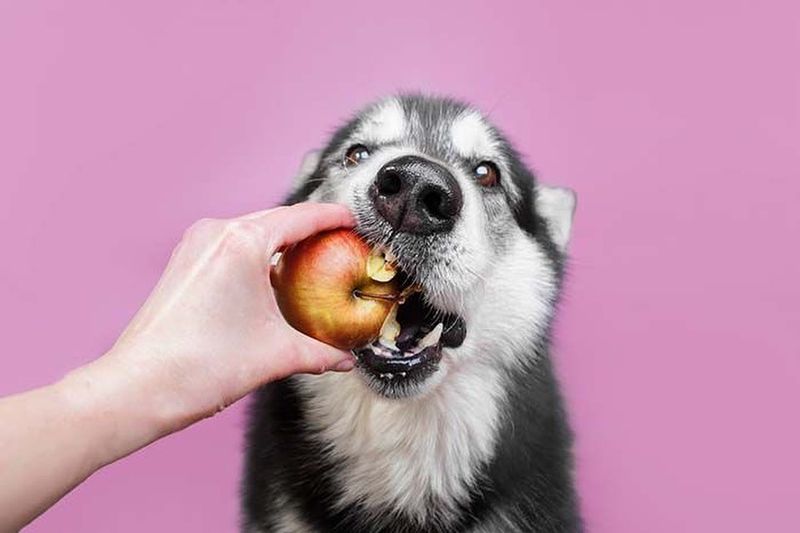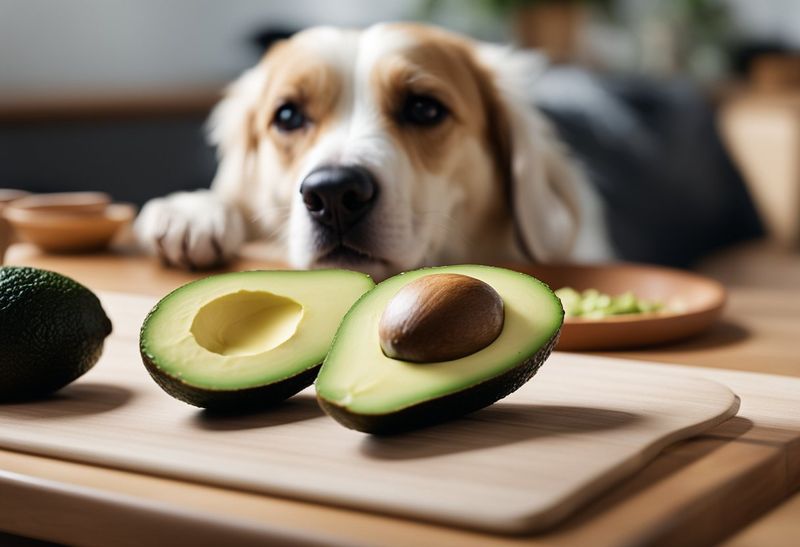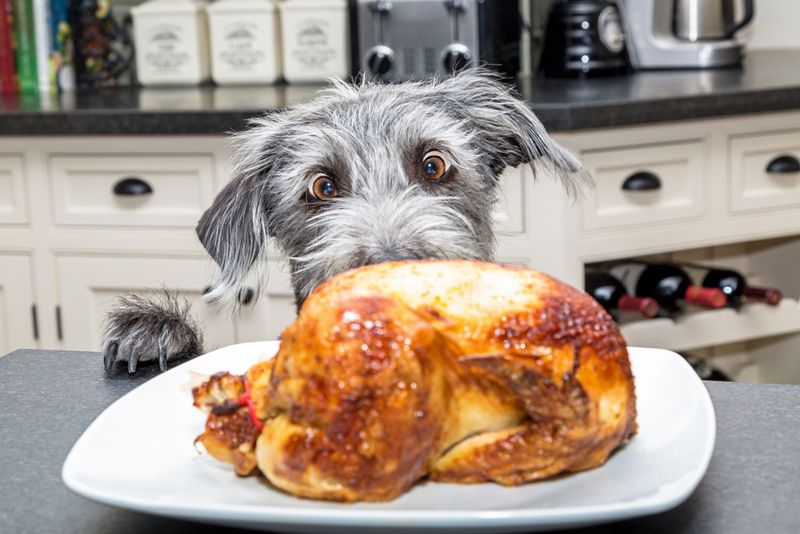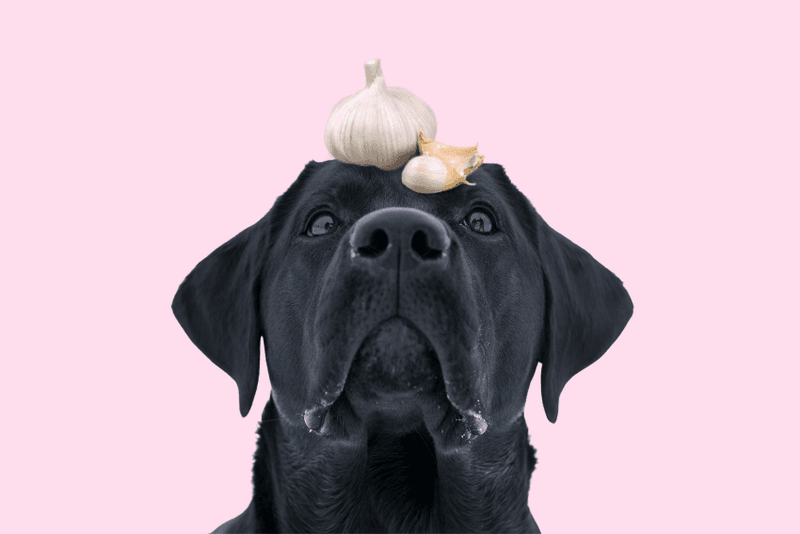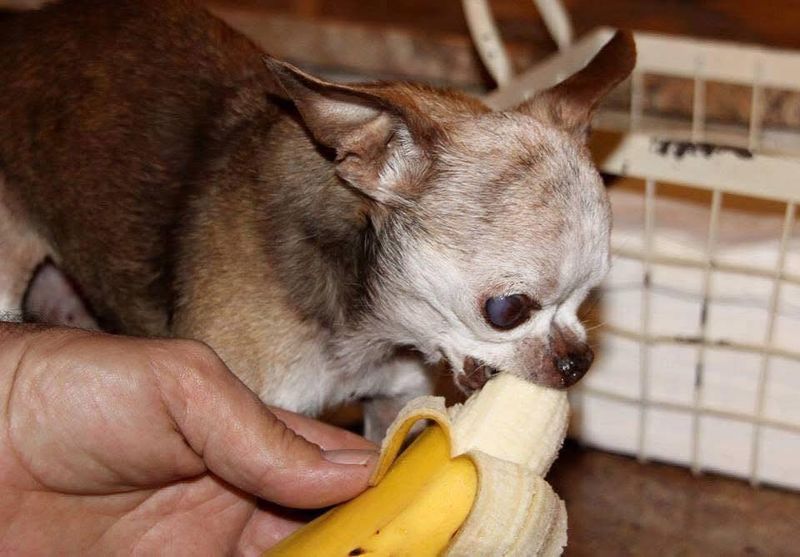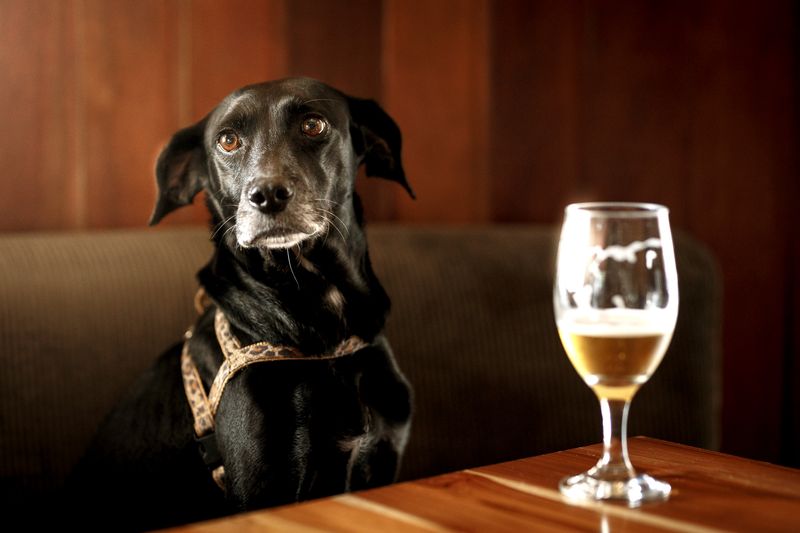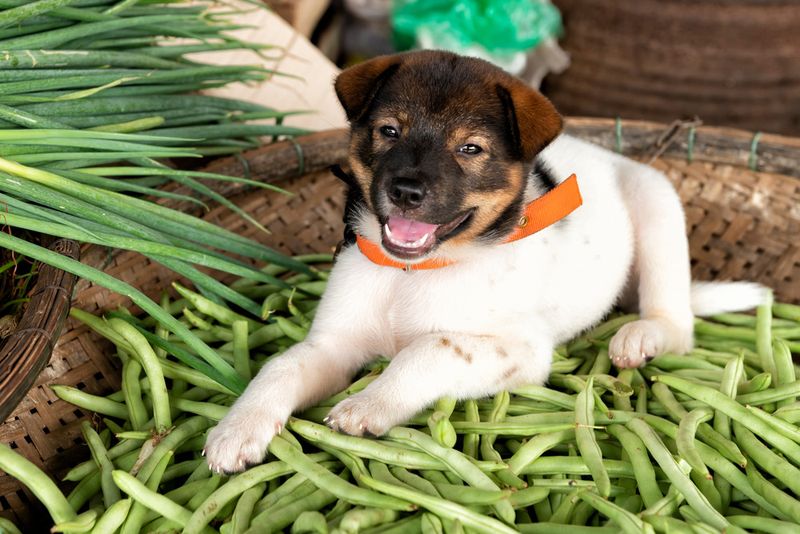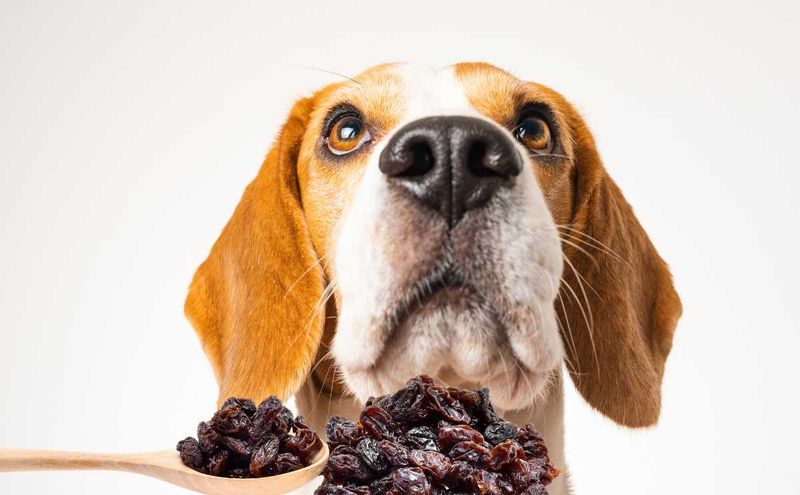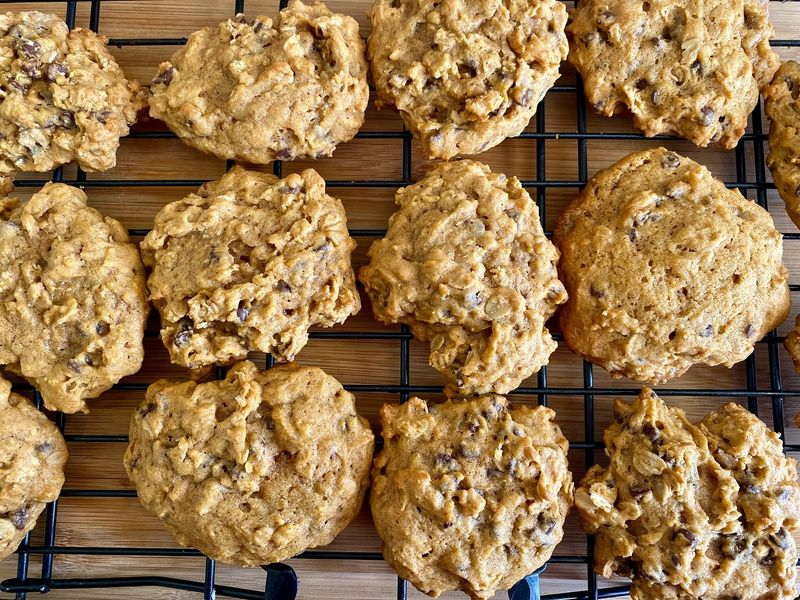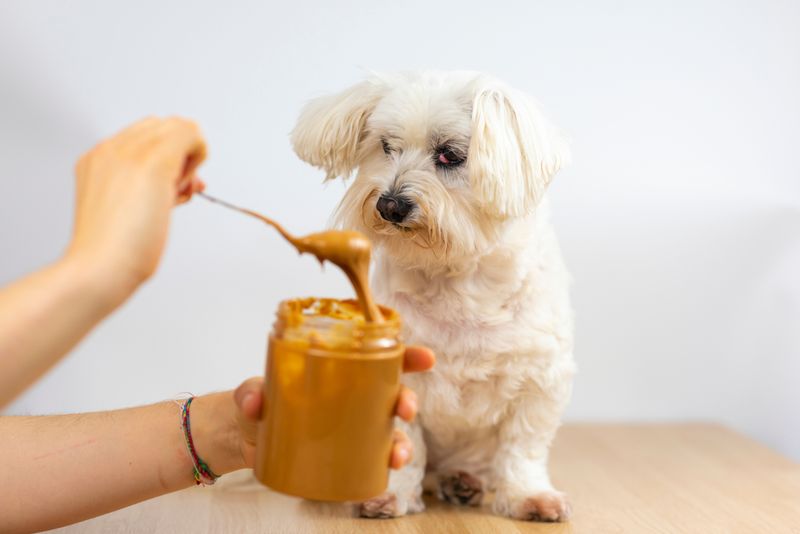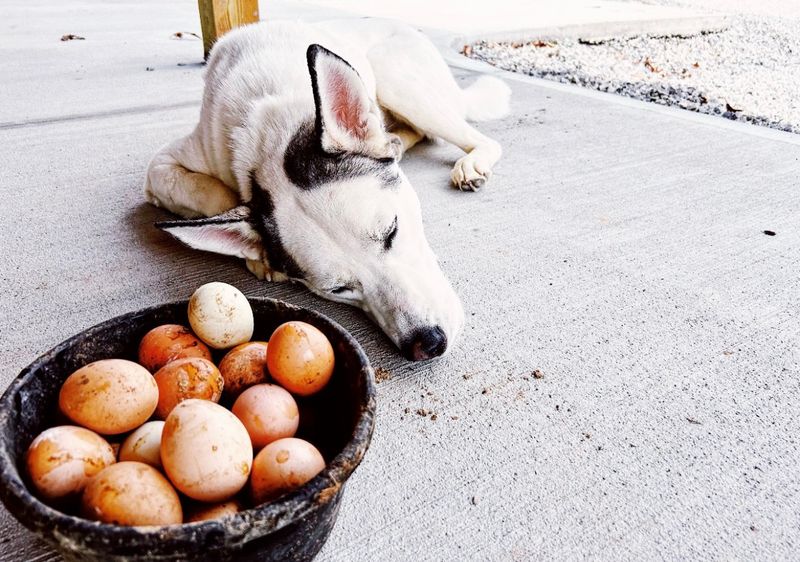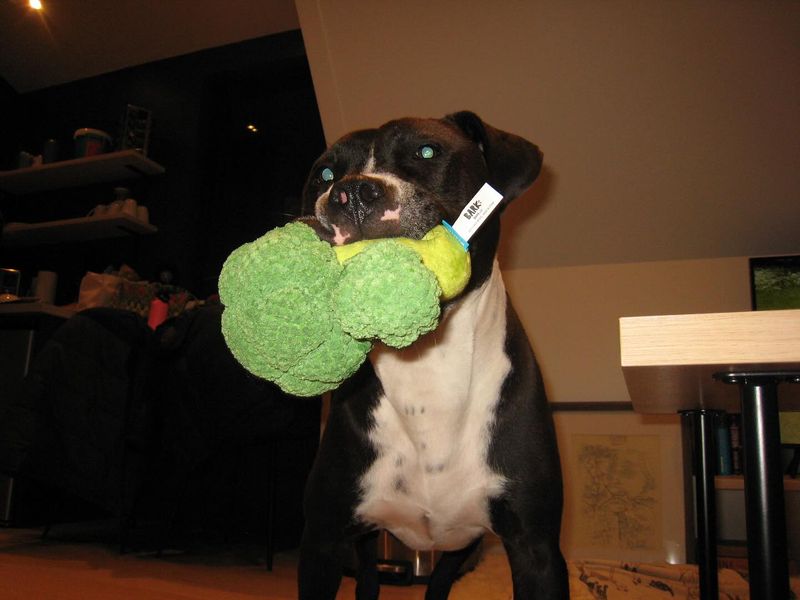Our beloved canine companions often show interest in our meals, but not all human foods are safe for dogs. Some foods can be given as occasional treats, while others might be harmful, even fatal. This blog outlines 19 human foods that are safe for dogs and 7 that should be strictly avoided. Knowing which foods to allow and which to ban can make a significant difference in your pet’s health and happiness. We delve into each food’s benefits or dangers, ensuring your pet’s safety and well-being.
Blueberries
Blueberries are a delicious and healthy snack for dogs. Rich in antioxidants, they help fight free radicals in your pet’s body. These tiny berries are not only nutritious but also low in calories. A perfect treat for training sessions! Did you know? Blueberries can be frozen and given as a cool treat on a hot day. However, like any treat, moderation is key to avoid upset stomachs.
Grapes
Despite their appeal, grapes are highly toxic to dogs. Even small amounts can lead to sudden kidney failure. The exact substance causing toxicity is unknown, but the effects are well-documented. Symptoms include vomiting, diarrhea, and lethargy. If ingested, it’s crucial to contact a veterinarian immediately. The sweet taste is deceivingly dangerous! Always store grapes and raisins out of your pet’s reach.
Peanut Butter
Peanut butter is a favorite treat for many dogs. Packed with protein and healthy fats, it makes an excellent snack. Be sure to choose unsalted, xylitol-free peanut butter to ensure safety. A dollop can keep your dog entertained for hours! Use it to hide pills or as a reward during training. Remember, moderation is essential to maintain a healthy weight.
Chocolate
Chocolate is a well-known danger to dogs. Theobromine and caffeine are the culprits, causing symptoms like vomiting, restlessness, and even seizures. Dark chocolate and baking chocolate are particularly hazardous. If your dog consumes chocolate, a veterinarian visit is necessary. The sweet temptation is not worth the risk! Keep chocolate out of reach and educate guests about the danger.
Carrots
Carrots are a great low-calorie snack for dogs. They are rich in fiber and vitamins, promoting healthy digestion and dental health. Dogs often enjoy the satisfying crunch and natural sweetness. Did you know? Chewing on carrots can help clean your dog’s teeth. Whether raw or cooked, carrots are a versatile addition to your pet’s diet, providing essential nutrients.
Onions
Onions are extremely toxic to dogs. They contain compounds that can cause oxidative damage to red blood cells, leading to anemia. Symptoms include weakness, vomiting, and breathlessness. Even small amounts can be harmful. If you suspect your dog has consumed onions, seek veterinary care immediately. Onions, garlic, and chives all pose similar risks. Keep them out of your dog’s diet.
Apples
Apples make a crunchy, nutritious snack for dogs. They’re packed with vitamins A and C, as well as fiber. When offering apples, be sure to remove the core and seeds, as they contain cyanide. An apple slice can be a refreshing treat on a warm day. Did you know? Apples can help freshen your dog’s breath. A simple, healthy snack that dogs love!
Avocado
Avocado contains persin, which can be harmful to dogs in large amounts. While the flesh is generally safe in small doses, the pit poses a choking hazard. Symptoms of persin toxicity include upset stomach and vomiting. It’s best to avoid avocados entirely to prevent any health risks. The smooth, creamy texture might be tempting but isn’t worth the potential danger.
Cooked Chicken
Cooked chicken is a lean protein source that’s safe for dogs. It can be served plain or mixed with their regular food. Chicken provides essential amino acids and helps maintain strong muscles. Always ensure it’s cooked thoroughly and free of bones. Did you know? Chicken is often used in dog foods due to its nutritious profile and palatability. A versatile and healthy addition to your dog’s diet.
Macadamia Nuts
Macadamia nuts are a serious no-no for dogs. These nuts can cause vomiting, weakness, and even neurological symptoms like tremors or hyperthermia. The exact toxin is unknown, making them particularly dangerous. Keep macadamia nuts far away from your furry friend’s curious nose. Even a small amount can lead to distressing symptoms, requiring immediate veterinary attention.
Pumpkin
Pumpkin is a nutritious addition to your dog’s diet. Rich in fiber and vitamins, it aids digestion and can help with weight management. Plain canned pumpkin is often used to soothe upset stomachs or as a dietary supplement. Did you know? Pumpkin seeds are also beneficial, offering additional nutrition and parasite control. A seasonal treat that dogs happily enjoy!
Garlic
Much like onions, garlic is toxic to dogs. It contains thiosulfates, leading to oxidative damage of red blood cells, causing anemia. Symptoms might not appear immediately but can include lethargy, rapid breathing, and vomiting. Even small amounts can be harmful. If ingested, veterinary care is essential. The strong aroma might attract curious noses, but it’s best kept out of reach.
Bananas
Bananas are a sweet, low-calorie treat for dogs. They’re rich in potassium, vitamins, and biotin. Bananas are great for energy and can be mashed or sliced for a quick snack. However, due to their sugar content, they should be fed in moderation. Did you know? Bananas can aid in muscle recovery after exercise. A convenient and delicious fruit that many dogs enjoy!
Alcohol
Alcohol is extremely dangerous for dogs. Even small amounts can lead to alcohol poisoning, causing symptoms like confusion, vomiting, and seizures. Unlike humans, dogs metabolize alcohol differently, making them more susceptible to its effects. Keep alcoholic beverages and foods containing alcohol far away from your pet. If accidental ingestion occurs, immediate veterinary care is critical.
Sweet Potatoes
Sweet potatoes are a healthy, tasty treat for dogs. They’re rich in fiber, vitamins, and antioxidants. When cooked, sweet potatoes aid digestion and promote a shiny coat. Serve them as treats or mix them into regular meals. Did you know? Sweet potatoes can be made into chews, offering a satisfying and nutritious snack. A delightful way to enhance your dog’s diet.
Caffeine
Caffeine is a strict no for dogs. It can cause restlessness, rapid breathing, and even heart palpitations. Found in coffee, tea, and energy drinks, caffeine is highly toxic to pets. Symptoms of caffeine poisoning can be severe and require immediate veterinary attention. Keep caffeinated products well out of reach from curious noses. The invigorating aroma might tempt, but the risk is substantial.
Green Beans
Green beans are a low-calorie, nutritious snack for dogs. They’re packed with vitamins, minerals, and fiber. Many dogs enjoy the crunchy texture and mild flavor. Green beans can be served plain, steamed, or mixed into meals. Did you know? They’re often included in weight management diets due to their filling nature. A simple, healthful treat that dogs love!
Raisins
Raisins, like grapes, are incredibly toxic to dogs. Even small quantities can lead to sudden kidney failure. The exact toxin is unknown, but symptoms like vomiting and lethargy are common. If your dog ingests raisins, immediate veterinary care is crucial. Keep them well out of reach and ensure that family and friends are aware of the danger. A small treat for humans, but a big risk for pets.
Oatmeal
Oatmeal is a wholesome option for dogs. It’s rich in fiber, aiding digestion and promoting a healthy coat. Plain oatmeal, served cooked, can be a comforting meal. It’s especially beneficial for dogs with wheat allergies. Did you know? Oatmeal can help soothe itchy skin when applied topically. A versatile and nutritious food that can be customized with dog-friendly additions like pumpkin or blueberries.
Xylitol
Xylitol, a sugar substitute, is extremely dangerous for dogs. It’s found in sugar-free gum, candies, and some peanut butters. Ingesting xylitol can lead to a rapid insulin release, causing hypoglycemia. Symptoms include vomiting, loss of coordination, and seizures. Immediate veterinary care is crucial if consumed. Unlike humans, dogs are highly sensitive to xylitol’s effects. Always check labels and keep such products out of reach.
Eggs
Eggs are a complete source of nutrition for dogs. They provide protein, fatty acids, and essential vitamins. Served cooked, eggs can be a delightful meal or treat. Raw eggs, however, should be avoided due to the risk of salmonella. Did you know? Eggs can help maintain a shiny coat and strong nails. Whether boiled, scrambled, or poached, eggs are a versatile food dogs enjoy.
Cherries
Cherries contain cyanide in their pits, stems, and leaves, making them hazardous for dogs. While the flesh itself is safe in small amounts, the risk of cyanide poisoning is high. Symptoms include difficulty breathing, red gums, and dilated pupils. If your dog consumes any part of a cherry, contact a veterinarian immediately. The juicy allure is not worth the potential danger.
Broccoli
Broccoli is a healthful treat for dogs when given in moderation. It’s rich in vitamins and minerals, aiding digestion and immune function. Dogs may enjoy the crunchy texture and mild taste. However, too much broccoli can cause stomach upset due to isothiocyanates. Did you know? Broccoli stems can be a chewy delight. A nutritious addition to your dog’s diet, best served cooked.
Mushrooms
Certain mushrooms are toxic to dogs. Wild varieties can cause severe symptoms, including vomiting, diarrhea, and neurological issues. If ingested, seek veterinary care immediately. Store-bought mushrooms, like button or portobello, are generally safe when cooked. However, caution is advised. The forest floor might tempt curious noses, but the risk is substantial. Educate others about the dangers of wild mushrooms to pets.
Plain Rice
Plain rice is a gentle food for dogs, especially those with sensitive stomachs. It’s easy to digest and can help bind stool in cases of diarrhea. Rice is often mixed with chicken to provide a soothing meal. Did you know? Brown rice offers more nutrients but can be harder to digest. A simple, comforting option for dogs needing a bland diet, plain rice is a pantry staple.
Ice Cream
Ice cream might seem like a fun treat for dogs, but it can be problematic. Many dogs are lactose intolerant, leading to stomach upset. Additionally, some ice creams contain xylitol, which is toxic to dogs. Instead, opt for dog-friendly ice cream alternatives. The creamy delight may entice, but the potential for digestive distress or toxicity is high. Always check labels and choose wisely.
